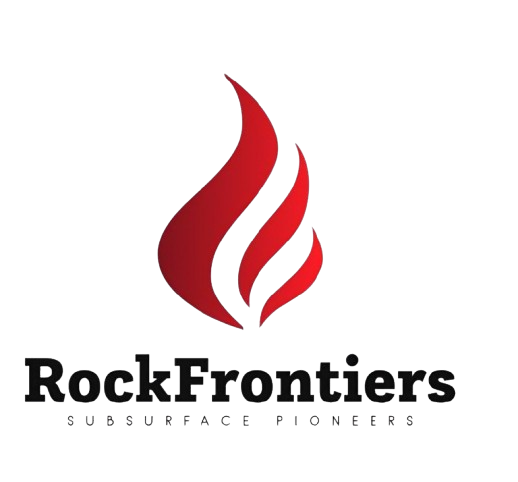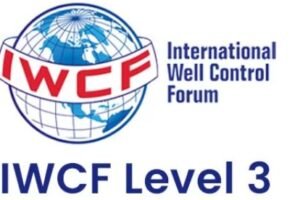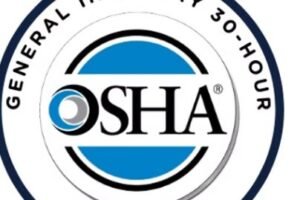🛢️ Introduction to Reservoir Engineering
📘 Course Description This foundational course is designed to introduce the principles, methodologies, and calculations used in reservoir engineering. Participants will gain a clear understanding of fluid behavior in porous media, reservoir drive mechanisms, material balance, well testing basics, decline …
Overview
📘 Course Description
This foundational course is designed to introduce the principles, methodologies, and calculations used in reservoir engineering. Participants will gain a clear understanding of fluid behavior in porous media, reservoir drive mechanisms, material balance, well testing basics, decline analysis, and an overview of reservoir simulation. By the end of the course, attendees will be able to apply core reservoir engineering concepts to estimate reserves, predict performance, and contribute effectively to reservoir management.
🎯 Learning Objectives
✅ Understand the fundamentals of reservoir rock and fluid properties
✅ Learn reservoir drive mechanisms and their impact on production
✅ Apply material balance methods for reserve estimation
✅ Interpret basic well test data for reservoir characterization
✅ Conduct decline curve analysis for production forecasting
✅ Gain an overview of reservoir simulation and its applications
👥 Who Should Attend
-
Graduate reservoir, petroleum, production, and drilling engineers
-
Geoscientists seeking reservoir engineering fundamentals
-
Asset managers & planners
-
Technical staff involved in field development
-
Professionals transitioning into reservoir management roles
🗂️ Training Format
✅ Instructor-led lectures with step-by-step examples
✅ Interactive exercises & calculations
✅ Real field case studies
✅ Group discussions for practical understanding
✅ Daily Q&A sessions
📅 Day-by-Day Agenda with Time Breaks
📅 Day 1: Introduction to Reservoir Engineering & Rock Properties
| Time | Topic |
|---|---|
| 08:30 – 09:00 | Welcome, Introductions & Course Objectives |
| 09:00 – 10:30 | Reservoir Engineering Overview & Reservoir Types |
| 10:30 – 10:45 | ☕ Coffee Break |
| 10:45 – 12:15 | Porosity, Permeability, and Rock Wettability |
| 12:15 – 13:15 | 🍽 Lunch |
| 13:15 – 14:45 | Capillary Pressure & Relative Permeability |
| 14:45 – 15:00 | ☕ Coffee Break |
| 15:00 – 16:30 | Rock Compressibility & Reservoir Rock Mechanics |
📅 Day 2: Fluid Properties & Phase Behavior
| Time | Topic |
|---|---|
| 08:30 – 10:00 | Classification of Reservoir Fluids: Black Oil, Volatile Oil, Gas Condensate |
| 10:00 – 10:15 | ☕ Coffee Break |
| 10:15 – 12:15 | PVT Analysis & Equations of State |
| 12:15 – 13:15 | 🍽 Lunch |
| 13:15 – 14:45 | Fluid Viscosities, Formation Volume Factors & Compressibility |
| 14:45 – 15:00 | ☕ Coffee Break |
| 15:00 – 16:30 | Reservoir Fluid Sampling & Laboratory Analysis |
📅 Day 3: Drive Mechanisms, Material Balance & Reserve Estimation
| Time | Topic |
|---|---|
| 08:30 – 10:00 | Primary Drive Mechanisms: Water Drive, Gas Cap Drive, Solution Gas Drive |
| 10:00 – 10:15 | ☕ Coffee Break |
| 10:15 – 12:15 | Material Balance Concepts & Applications |
| 12:15 – 13:15 | 🍽 Lunch |
| 13:15 – 14:45 | Volumetric Reserve Estimation Methods |
| 14:45 – 15:00 | ☕ Coffee Break |
| 15:00 – 16:30 | Decline Curve Analysis Basics & Types of Decline |
📅 Day 4: Well Testing & Reservoir Performance
| Time | Topic |
|---|---|
| 08:30 – 10:00 | Introduction to Well Testing: Objectives & Test Types |
| 10:00 – 10:15 | ☕ Coffee Break |
| 10:15 – 12:15 | Pressure Transient Analysis & Key Parameters |
| 12:15 – 13:15 | 🍽 Lunch |
| 13:15 – 14:45 | Well Productivity & Skin Factor Estimation |
| 14:45 – 15:00 | ☕ Coffee Break |
| 15:00 – 16:30 | Diagnostic Plots & Well Test Interpretation Examples |
📅 Day 5: Reservoir Simulation & Integrated Field Development
| Time | Topic |
|---|---|
| 08:30 – 10:00 | Reservoir Simulation Fundamentals: Grids, Properties, Initialization |
| 10:00 – 10:15 | ☕ Coffee Break |
| 10:15 – 12:15 | History Matching & Forecasting Reservoir Performance |
| 12:15 – 13:15 | 🍽 Lunch |
| 13:15 – 14:45 | Integrated Reservoir Management Strategies |
| 14:45 – 15:00 | ☕ Coffee Break |
| 15:00 – 16:30 | Final Integrated Case Study, Wrap-Up, Q&A, and Certificate Distribution |
📦 Materials Provided
✅ Course manuals & slides
✅ Reservoir engineering calculation templates
✅ Reference charts for PVT & material balance
✅ Practical case studies
✅ Certificate of Completion
Target audiences
- Reservoir Engineers, Geologists
You May Like
📘 Underbalanced Drilling (UBD) Techniques and Safety
🎯 Course Description: This intensive 5-day program focuses on Underbalanced Drilling (UBD) – an advanced technique used to drill wells where the hydrostatic pressure of the fluid is intentionally kept below formation pressure. Participants will learn how to implement UBD …
📘 IOSH Managing Safely
🎯 Course Description: A practical, 5-day program designed to help managers and supervisors learn how to manage safety and environmental responsibilities in their teams. Emphasis is placed on identifying risks, measuring performance, and leading safely using internationally recognized good practices. …
📘 IWCF Level 3 Well Control (Surface BOP)
🎯 Course Description: This is an intensive course aimed at drilling / well service personnel needing to gain supervisory competence in well control using surface blow‑out preventers (BOP) under the IWCF standard. It covers theory, hands‑on practice, and assessments for …
Advanced Specialist Petroleum GeoMechanics
📘 Course Description: This elite-level course is tailored for petroleum geomechanics specialists and senior subsurface professionals engaged in complex field development projects. It provides a deep technical dive into stress modeling, anisotropic rock behavior, coupled geomechanical-reservoir simulation, fault/fracture mechanics, and …
📘 OSHA 30‑Hour General Industry Safety and Health
🎯 Course Description: This 5‑day course provides in‐depth knowledge of workplace safety and health in general industry sectors. It covers OSHA regulations, hazard recognition, safety programs, and industry best practices. Participants will gain the expertise needed to maintain a safe …






